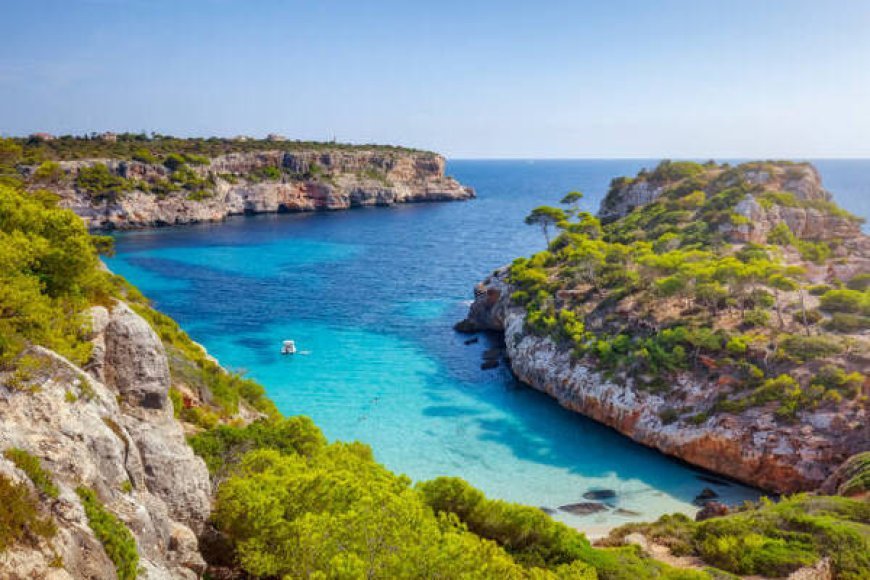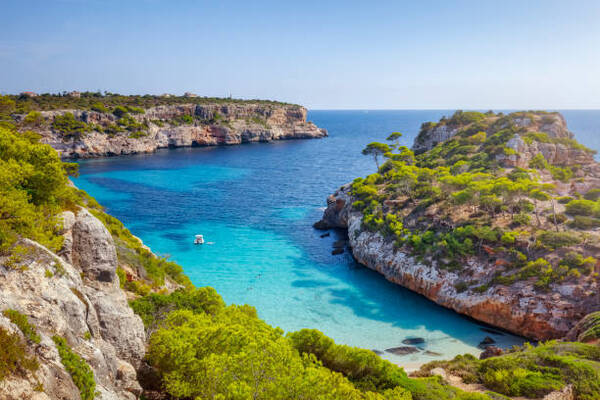Spain’s Mallorca Declares Water Emergency Leaving Tourists Without Supply In Luxury Resorts And Popular Villages


Deià, a scenic village in northern Mallorca, Spain, has imposed strict water restrictions in response to worsening drought conditions and inadequate local water resources. With its limited supply dependent on a single well and a small spring, the village can no longer meet peak seasonal demand, especially as tourist numbers surge during the summer months. Authorities have introduced scheduled water shutoffs three days a week to manage consumption, impacting both residents and visitors. This urgent measure follows years of appeals for improved infrastructure and highlights the increasing pressure that climate change and tourism are placing on Spain’s fragile island water systems.
Northern Mallorca village enforces water usage ban as drought worsens
Amid intensifying drought conditions in Spain, the picturesque village of Deià in northern Mallorca has introduced strict water restrictions affecting both residents and visitors. As one of the country’s most scenic coastal towns, located about 30 kilometers from the capital Palma and near Port Soller, Deià has long been a popular destination. But now, it stands at the heart of a growing water crisis.
Authorities have implemented drastic measures in response to dwindling resources. Starting immediately, the drinking water supply to substantial parts of the municipality will be cut off three days per week—specifically on Mondays, Wednesdays, and Fridays. These scheduled interruptions are aimed at managing the increasingly unsustainable demand on local water reserves.
The affected areas include vital residential and tourism zones such as La Cala, Llucalcari, S’Empeltada, Ses Coves, and the road leading toward Soller. These neighborhoods are home to many villas, chalets, and popular hotel properties. As a result, the restrictions are impacting not only the local population but also the thousands of tourists who visit the area each summer.
The decision comes after a summer marked by repeated warnings and growing concerns over water scarcity. Earlier attempts to manage the shortage involved transporting water daily from Palma to supplement local supplies—a tactic used regularly during peak tourist seasons. However, this solution is no longer sufficient, and the municipality’s limited water sources are unable to support the current population load.
The village’s weekly water usage stands at around 3,300 cubic meters, with daily consumption averaging approximately 471 cubic meters. Nearly 37% of this demand is met through deliveries by tanker trucks. Particularly concerning is the consumption in Llucalcari, one of the smaller areas, which uses around 200 cubic meters per day on its own. This disproportionate usage played a significant role in the authorities’ decision to impose rotational water shutoffs.
These aren’t the first restrictions introduced this season. Since early summer, strict prohibitions have been in place against non-essential water activities. These include watering gardens, filling swimming pools, washing cars, or cleaning outdoor spaces. Only fundamental domestic use—such as for drinking, cooking, and hygiene—is permitted.
Local infrastructure limitations lie at the core of the crisis. Deià depends on just one well and a small natural spring to meet its water needs. These sources are unable to cope with the seasonal surge in demand as tourists flood the region each summer. Without access to a larger water network, the village has become increasingly vulnerable to drought-related stress.
Over the years, officials have called for integration with larger water systems or nearby reservoirs that could offer a more reliable supply. One such potential connection lies in the neighboring area of Soller, which has more robust infrastructure. However, progress on this front has stalled, leaving Deià to fend for itself with limited options and growing pressure.
The summer heat, compounded by climate change, has intensified the issue. Long dry spells and insufficient rainfall have reduced the recharge rate for natural springs and underground reserves. As temperatures rise, demand for water increases not only for basic needs but also for cooling and leisure activities—most of which are now banned under the current regulations.
The situation also poses a challenge for the tourism industry. With many high-end accommodations located in the affected areas, service disruptions could lead to discomfort for guests and potential reputational harm for local businesses. Hotels and rental properties are being encouraged to inform visitors about the restrictions and promote water conservation practices.
Despite these hardships, the community has shown a level of understanding. Many residents and business owners acknowledge the necessity of the measures, even as they hope for a more permanent resolution in the near future. Discussions around long-term infrastructure investments and better water management practices are once again gaining momentum, as the current crisis underscores the urgency of sustainable solutions.
Unless significant improvements occur—either through rainfall, infrastructure upgrades, or broader policy intervention—the water restrictions in Deià may extend beyond the summer months. For now, conservation remains the only viable path forward, as the village attempts to preserve its limited resources amid one of the driest periods in recent memory.
The post Spain’s Mallorca Declares Water Emergency Leaving Tourists Without Supply In Luxury Resorts And Popular Villages appeared first on Travel And Tour World.






